Interview with Basketball Icon Grant Hill

It is nearly impossible to recount Grant Hill's career adequately. That would be like asking for a brief synopsis of the Old Testament. After 30 years in the public spotlight, it all blurs together in a glorious montage of dunks, commercials, accolades, comebacks, and corporate partnerships.
Only one person is capable of telling that story, and it's Hill himself. At 49 years old, the basketball legend has written an autobiography appropriately titled GAME which takes on the daunting task of describing what it means to be number 33 on and off the court.
Like every other challenge Hill has taken on, it resulted in victory. Let's talk to the titan of the boardroom and basketball court about his book and playing days.
Spirit
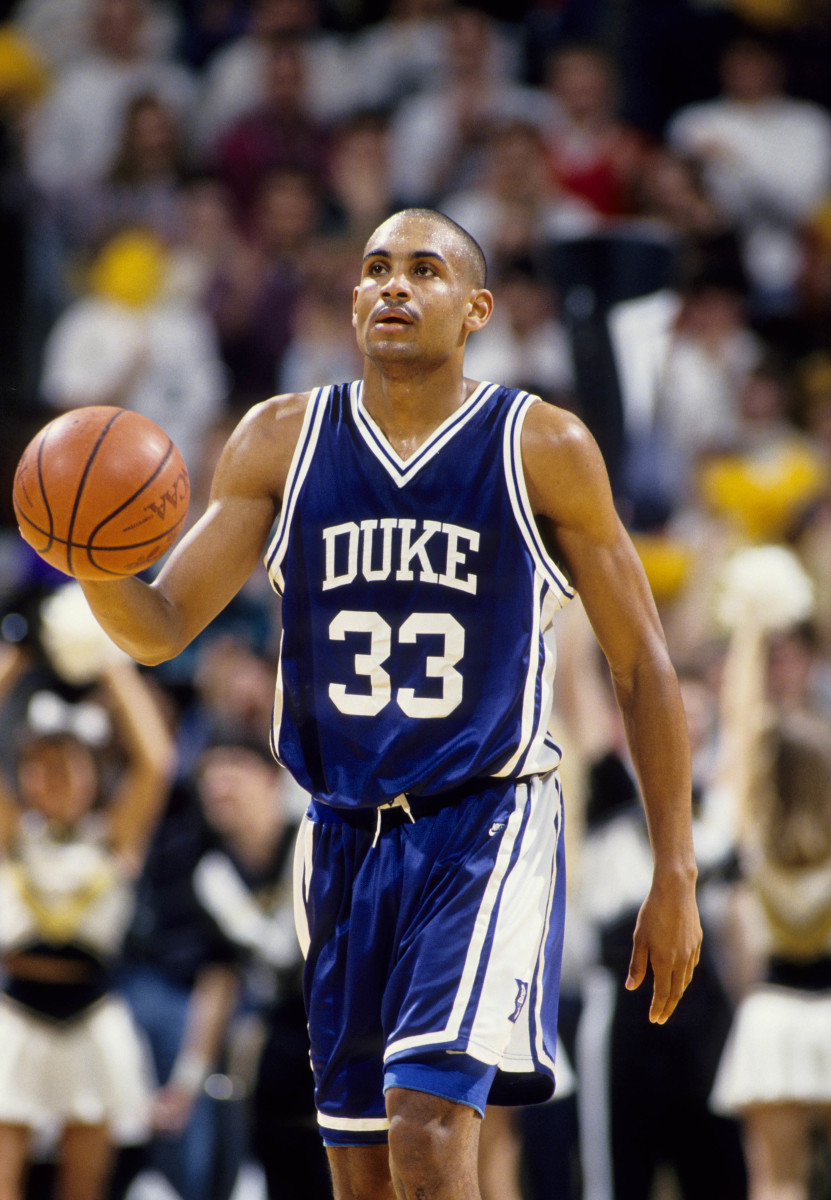
Your book GAME is brutally honest. Which part of the book was the most difficult to write?
"You know... I'll tell you the easiest part. The Duke part. It was easy to recall and remember. If anything, I had to shorten the Duke part, which I found to be interesting. In just four years, I found I could have written one book on each year.
I think my injury ordeal, that was probably the hardest. It was obviously a tough time to go through. But in a way, tougher to go back and relive it almost 20 years later. That was probably the more challenging part for a lot of reasons."
I didn’t know that your injury almost resulted in an amputation. What got you through that dark period?
"I think faith, no question. Going to church, reading the Bible. I think my family. Also, too, sports really can condition you to thinking you can do the unthinkable. What I mean is, you're in a game, and you're down 10 points with four minutes left; you feel like you have a chance to win. You have to feel this way. That's why upsets occur. That's why great comebacks occur. So, I felt like I was going to win. For the exception of maybe a few months after my staff infection and subsequent surgery - that point, I didn't want to do it anymore.
But for the most part, I felt like I'm going to get through this. I'm going to find a way. I'm going to make up for it on the backend and play until I'm 40. And the day I turned 40, my last year in the year NBA with LA Clippers, I hurt my knee. It was my third knee injury. I would tell myself, 'I should have said 45'."
Log on here to get autographed copies of my memoir GAME https://t.co/sHeCt1R4oa
— grant hill (@realgranthill33) June 10, 2022
Did writing about your family ever feel too revealing or too intimate to share with the world?
"Yeah, some of the stuff with my wife - meeting each other and courtship. I struggled with how much to get into. Also, not telling her story. She has a story, and when you've been married almost 23 years, so much of your life is intertwined. So you have to share and have to give. But I don't want to tell her story, so that is something I tried to delicately approach. I think I did a decent job of it."
Professional
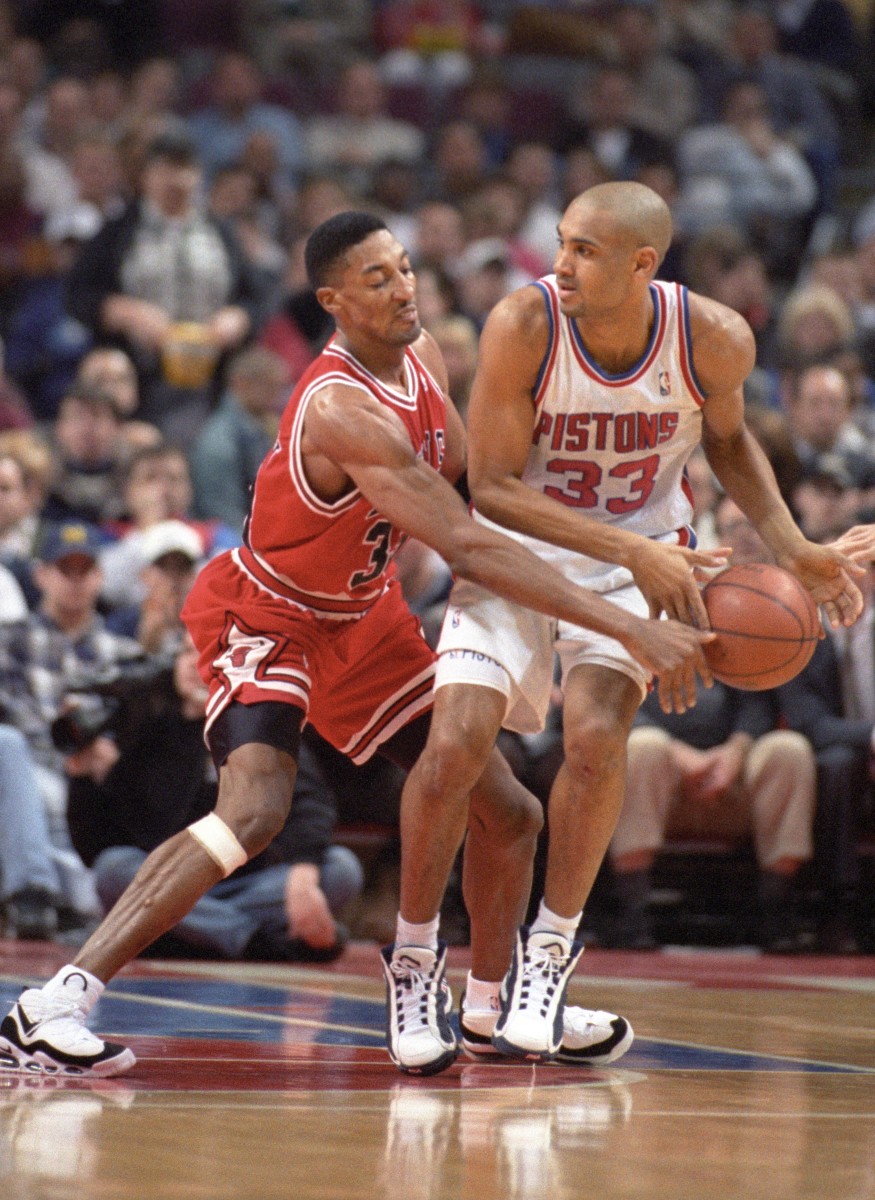
You were more than a household name in the 90s. You were a legitimate celebrity. Who was a famous person you met that had you starstruck at that time?
"I was around sports my whole life, so I wasn't starstruck by being around athletes. When I was young, I met Stevie Wonder. I'm a big boxing fan. I do remember meeting George Foreman in the late 70s. But yeah, I met a few people here and there. But I was around football my whole life and wasn't in awe of a lot of those guys because I was always around them."
Muhammad Ali visited the U.S. Oly Bball Team at 1996 Atlanta Oly and squared off with Grant Hill. RIP Champ! #Legend pic.twitter.com/LrpGlre1fu
— USA Basketball (@usabasketball) June 5, 2016
In the book, you discuss your sneaker deal with FILA. It was a best-seller and worn by rappers like Tupac and Method Man. But Charles Barkley blamed the shoes for your injuries. How did that make you feel?
"Yeah, I mean, Charles. Come on... I think it was a time when you didn't have the access. People didn't have the full story. They didn't know the totality of my injury ordeal. In the book, I really went through and explained what happened. A lot of people had no idea the extremes that took place. All people knew was I wasn't out there playing, so I think it was easy and maybe a little bit lazy to blame it on the shoes. But it was so much more in-depth and detailed.
And there was some, no pun intended, the ball was dropped a little bit in terms of the care and decisions that were made. So when you read the whole story, when Charles Barkley read- I got the audio version for my guy Chuck too. He can understand that and maybe come up with a different conclusion as it relates to how I got hurt."
On the flip side, how does it feel that your FILA signature sneakers have become popular again?
"It is cool. This young generation, they like retro. Retro has a story behind it. There's a history behind it. Some of the styles and fashion trends back then are kind of recircling. So it's pretty cool. It's great to re-release the shoes and do them in different colorways and do them in different partnerships... Those are my shoes, and people identify me with those shoes, so it's certainly flattering to see them still be well-received."
After hardly missing a game during your first six seasons with Detroit, you went to Orlando via a sign-and-trade. Were there any other teams you were interested in at that time besides the Magic?
"Yeah, I went into great detail about the Magic recruiting trip when Tim Duncan and I were both there together. I also had the Knicks, San Antonio, Miami, Chicago, and also staying in Detroit. So those were the options. Some of whom had cap-space, some of whom didn't. But those were teams I was interested in at that time."
Longevity
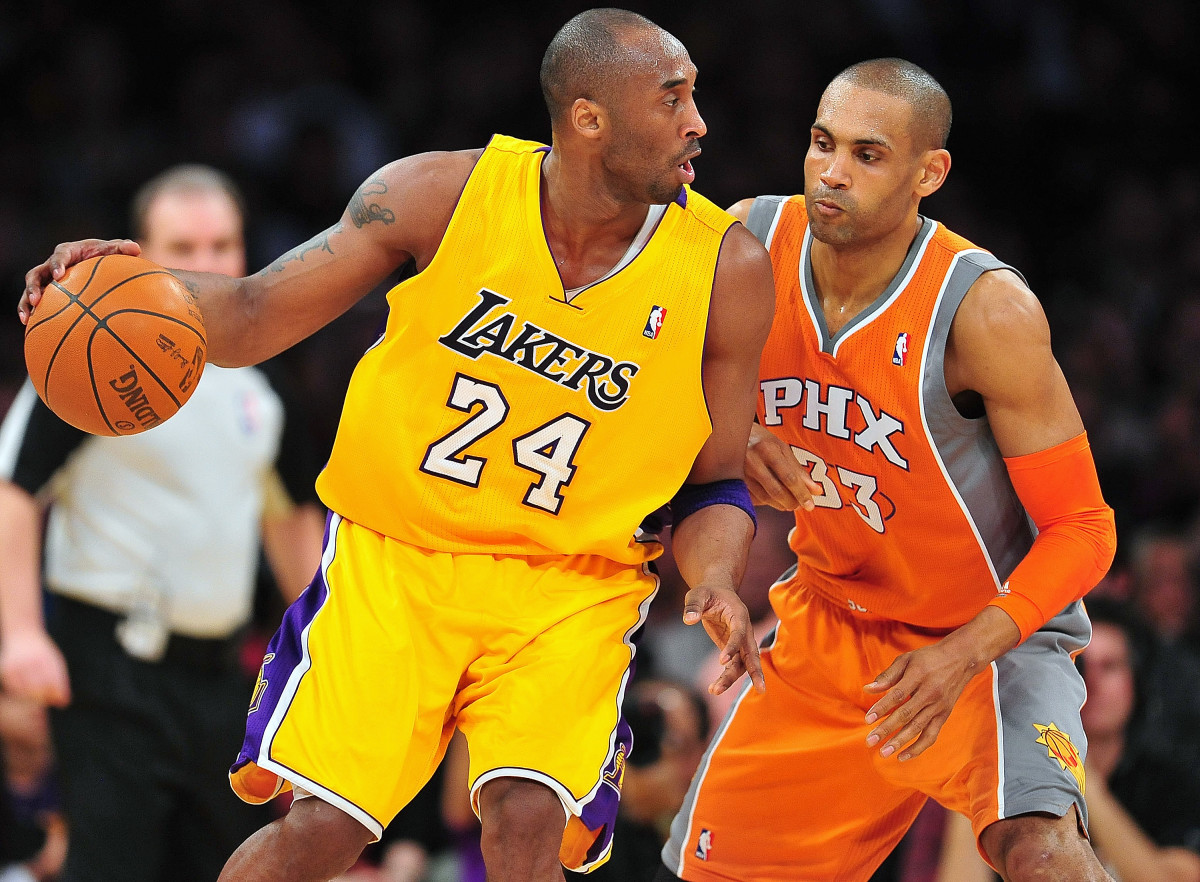
While in Phoenix, you played 70+ games in four straight seasons. What was the secret to your staying healthy at that time?
"When you're going through the injury ordeal and not getting the results you want, it forces you to take ownership of your health. Not only in terms of doctors and decisions but also eating right, recovery, all of those things. Like how can I get back on the court? Then, how can I stay on the court as I'm getting older?
So I became very particular about what I ate, recovery, and rest. Just taking care of my body. Doing preventative things. It took a village, but I was very particular about that. I wasn't quite the same player later on, but I was able to have longevity. And not just play, but play by not missing games. And at times being an iron-man of sorts after many, many years where I was unable to play because of injury."
There have been rumors that you were almost traded for Kobe Bryant. But, how close did you ever come to teaming up with Kobe?
"A couple things, one - I don't remember that. I've heard that in recent years. I even heard one about Allen Iverson. But the reality is when these rumors were allegedly going on, I was in my last year in Detroit. I couldn't imagine the Lakers, the Sixers, or anyone entertaining the idea of trading for me because I'm about to be a free agent and not reaching out and at least gauging whether I might be interested in staying. I've heard these rumors in recent years, but I don't remember hearing that at all back 20 years.
One regret that I have, well, I have a lot of regrets. But when I was a free agent in 2007, it was my last year in Orlando. When free agency started, Phil Jackson reached out to me two or three times via phone call. I didn't return that call. I just didn't think that LA - I thought their window had closed. And it shows you what I know.
But I always was a Lakers fan, and I always was a fan of Phil Jackson. I never had a chance to talk to him about it. He likes big guards, and it would have been interesting. I went to Phoenix, had a great run there. That first year in Phoenix, 07-08 we were in first place, they made that trade for Pau Gasol, and next thing you know they were contenders. So I could have been right there in the mix. Or I could have been traded for Pau Gasol. Who knows? But I sometimes wish I had entertained that a little bit more."
Phil Jackson said in 1999, he very briefly considered trading Kobe for Grant Hill.
— Ballislife.com (@Ballislife) October 5, 2021
During the 99-00 season, Grant Hill was All-NBA 2nd team & 3rd in scoring behind Shaq & AI.pic.twitter.com/Ny1OIFSqWC
Leadership
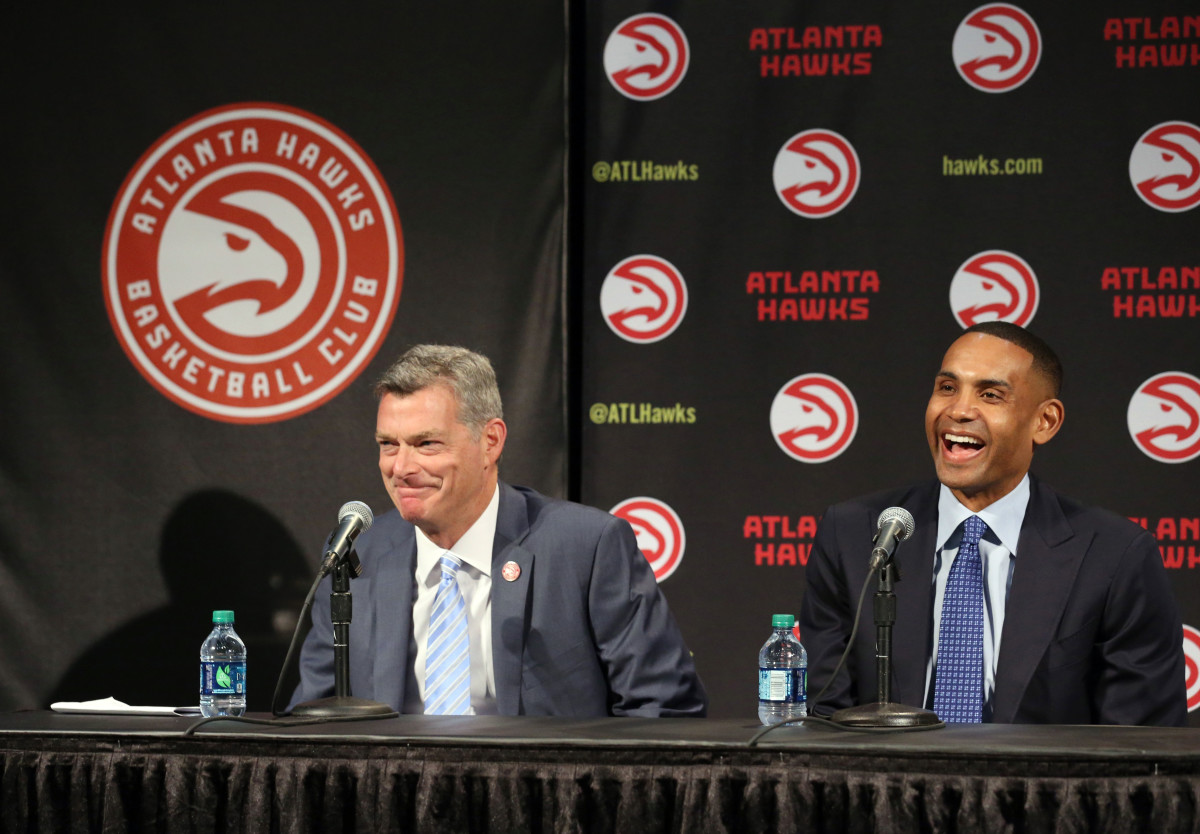
You’re a television analyst, managing director of Team USA Basketball, and part of the Atlanta Hawks ownership group. So, you’re plugged into the game. Which style of play do you prefer, the 90s/00s or the modern style?
"I enjoy playing when I did. I would love to have played in this era. The challenge of it, the way the game is officiated, the style of play, the amount of possessions. It's significantly different. But I'm a fan of both, and as someone who hasn't played in almost a decade, my former healthy self in today's era would be really interesting."
How do you think Trae Young would have fared in your generation?
"It's interesting because, in the 90s, point guards didn't really run around and shoot a lot of shots. It was more about running and executing the offense and getting the ball to other plays. So you didn't really have somebody like a Trae. You didn't have guys pulling up from four or five feet behind the three-point line. There was greater physicality, no question. But Trae's a quick guy. He's athletic. He can get by people... It was a different game. You can play the what-if or hypothetical thing, but I do think great players can play in all eras, and Trae is becoming that in this era."
What advice are you giving the Hawks this off-season?
"Not to over-panic. I think we had tremendous success the year before, the second half of the season. We had a great playoff run. We didn't really do anything in the off-season. Then we had a tough year. We didn't have the year we expected. We didn't have the playoff results we expected. Travis Schlenk, Steve Koonin, and Tony Ressler have all come out publicly and mentioned that.
But you know, success in the NBA isn't always linear. It's hard. I think we've learned more about ourselves this past year. I think we have an opportunity to get better. I always say, learn more after a loss than after a win. You're naturally going to be looking in the mirror and trying to discover ways to improve. I think the same thing applies to a franchise.
Look, Boston was in the bubble in the Conference Finals two years ago. Last year they lost in the first round, and now they are in the NBA Finals. In the process, they lost Gordon Hayward for nothing. So it was almost addition by subtraction. They make some changes, and they're right back there. So you don't want to over-panic, but you want to be thoughtful about your next moves. I think we have a better idea of what our core group needs, and we'll see if we can go out there and make that happen."
Last question, what do you hope readers take away from reading your book?
"I hope they learn a little more about me, my life, and my journey. Some of the incredible experiences and incredibly difficult times. Ultimately, at the end of the day, hopefully, it inspires. I know when I read memoirs or biographies or autobiographies, I feel like I come away inspired. So I know I used that at certain times in my life, so I'm hoping others can use that as well as they read GAME."
Recommended For You
Snakes, Waffles, Secret Doors: Kobe Bryant's Final Game in Atlanta
